PHP Skill Guide: The 3 Best PHP Online Courses and Certifications
Our best picks to learn PHP, based on Class Central data and 10+ years of experience as a PHP developer.
PHP might not be cool anymore, but it’s still one of the most widely used languages. According to W3Techs, “PHP is used by 79.1% of all the websites whose server-side programming language we know.” WordPress, which powers almost 40% of all websites on the internet, is built in PHP.
For coding courses, we think the best way to learn is screencasts, where an instructor walks you through concepts as he demonstrates them on a computer. What we also like about screencasts is that you get to see professional developers in action.
Class Central recommends PHP For Absolute Beginners by YouTuber The Codeholic as the best way to start learning PHP. With all our picks, I recommend you to actually do things along with the instructor, instead of passively watching the videos.
Though not a PHP course, Visual Studio Code for PHP Developers from Laracasts’ Jeffrey Way will help you set up VS Code on your machine. It’s also a great way to learn what a modern developer environment for PHP feels like.
The Research
- Why PHP
- Why You Should Trust Us
- How We Made Our Picks and Tested Them
- Our Pick: PHP For Absolute Beginners
- Also Great: The PHP Practitioner by Jeffrey Way (Laracasts)
- Best with a Certificate: Web Applications for Everybody by University of Michigan on Coursera
- Great Add-on: Object Oriented PHP Tutorial by Net Ninja
Why PHP
PHP remains widely used. According to the 2021 Stack Overflow Survey, 22% of the almost 83k respondents use PHP. Some of the world’s most popular sites, like Facebook and Wikipedia, were built with PHP. And WordPress, which powers almost 40% of all websites on the internet, is built in PHP. Even the Skill Guide you’re currently reading is powered by WordPress, and therefore, PHP.
I started learning PHP around 2005 because there were a number of free shared hosting services that would let me serve websites built in PHP. With limited resources and technical skills, I was able to launch my first blog in 2007. PHP played a huge role in lowering the barrier to creating websites on the web.
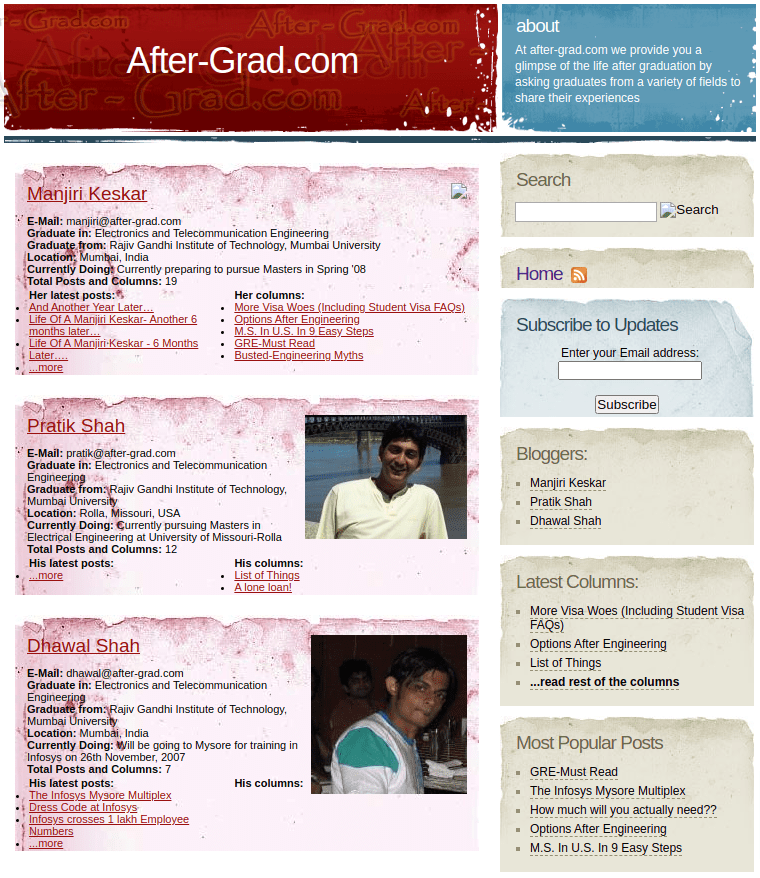
While other programming languages were adapted to serve web pages, PHP was engineered from the get-go to build websites. Here’s how Rasmus Lerdorf, creator of PHP, puts it: “I want my HTML to look like HTML. I wanted to separate the business logic from the templating of the front end”.
PHP started out as a templating system. It also has no shared state, which makes it easier to scale.
For other programming languages you can get this functionality by using a framework, but for PHP, it’s built right in. Rasmus’ fascinating talk, 25 years of PHP, is worth a listen to understand the evolution of PHP.
PHP 6 was a huge disaster and never launched. PHP moved directly from 5.4 to 7, which was a massive improvement. One aspect that really improved was the performance. I experienced this with the Class Central codebase itself. Moving from PHP 5.4 to 7+ was a breeze, and we noticed a significant performance boost.
PHP frameworks like Symfony and Laravel are really popular. They give you a lot of functionality of the box, and they’re being actively developed. The PHP ecosystem has everything that you would need or expect to build modern web applications.
Why You Should Trust Us
I have a Masters in Computer Science from Georgia Tech, and have been coding professionally in PHP for more than a decade. In 2011, to improve and showcase my technical skills, I built Class Central as a side-project using the PHP Symfony framework. Now I work on it full time.
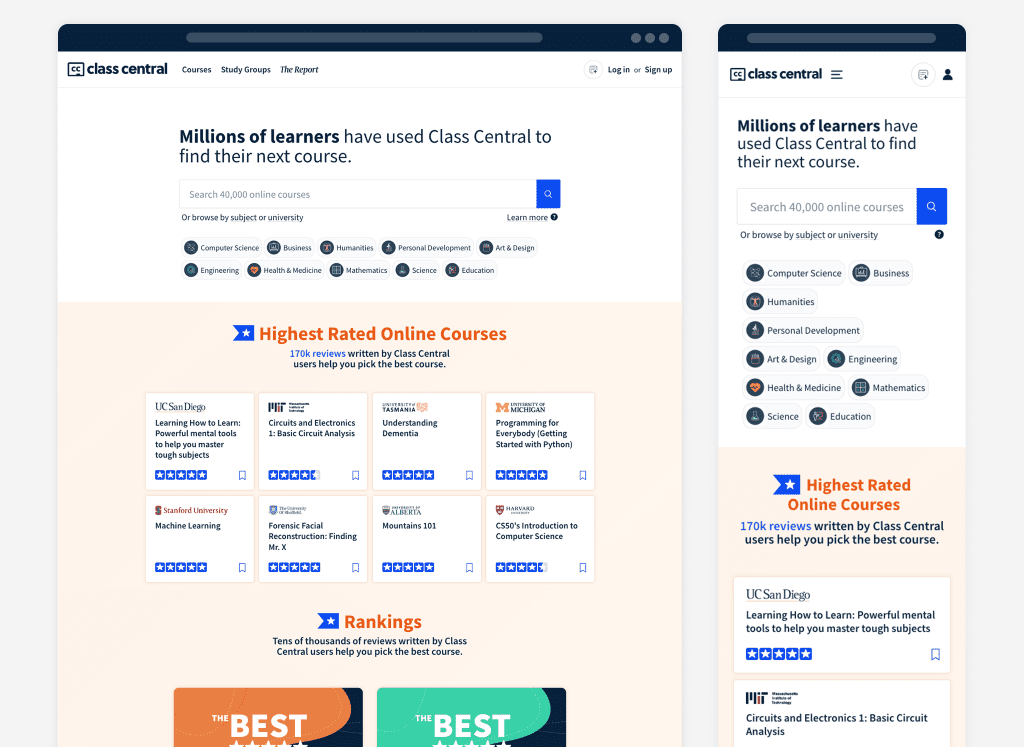
Class Central, a Tripadvisor for online education, has helped 50 million learners find their next course. We’ve been combing through online education for almost a decade to aggregate a catalog of over 40,000 online courses and 150,000 reviews written by our users. And we’re online learners ourselves: combined, the Class Central team has completed over 400 online courses, including online degrees.
I’ve personally completed over two dozen online courses, one of which helped me find my first job in Silicon Valley. I’ve also written over 200 articles on the online education industry, which have been read by millions of people around the world and received 1200+ citations according to my Google Scholar page. I’ve written for publications including Techcrunch, VentureBeat, Quartz, and The Observer.
How We Made Our Picks and Tested Them
The goal of this guide is to help learners get started quickly, avoiding choice overload and analysis paralysis. Trying to find “the best” can be daunting, even for those of us who live and breathe online courses. Class Central’s own catalog lists 500+ PHP online courses. Here’s how I approached this task.
First, I defined the scope for this skill guide. A beginners course in PHP should cover the following:
- Language basics: types, variables, control structures, functions, errors, exceptions, namespaces, classes.
- Language features: cookies, sessions, PDO/databases.
- Framework concepts (optional): autoloading, routing, controller, model, view, dependency injection, package management (Composer).
Then, I combed through Class Central’s Catalog and the internet to find a variety of free and paid courses, some with certificates that match the scope.
I extracted key bits of information from each course syllabus and review, and compiled their ratings, leveraging the Class Central database with its thousands of course ratings and reviews written by our users. But many of these courses are not listed in our catalog or don’t have reviews yet. And we can’t take every course.
Ultimately, we used a combination of data and our own judgement to make our picks. You’ll find all our picks below. We’re confident these recommendations will be a good way to start learning PHP.
Our Pick: PHP For Absolute Beginners
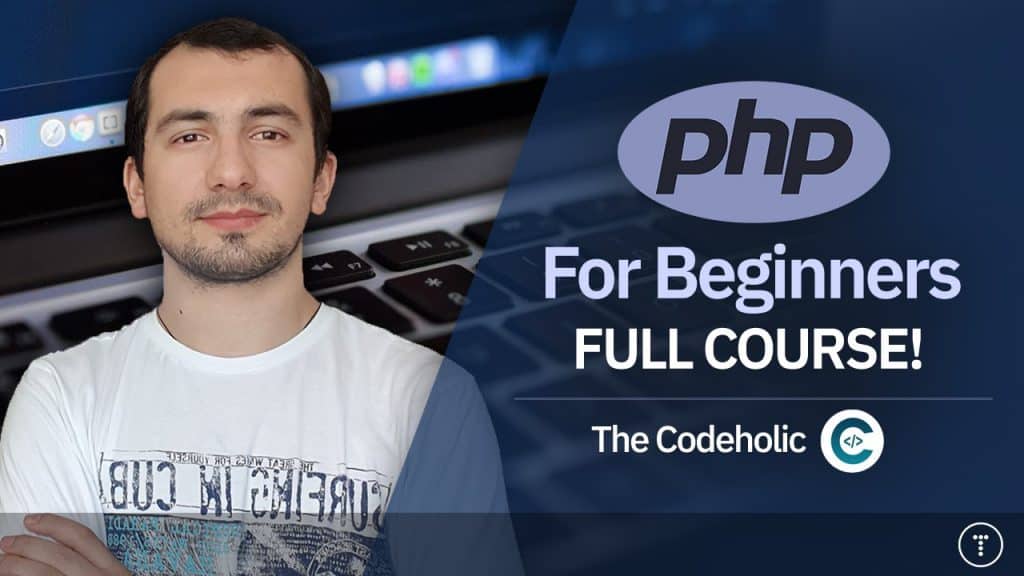
Launched in late 2020, PHP for Absolute Beginners by YouTuber The Codeholic (aka Zura) is 6.5 hours long and covers everything we’re looking for in a beginners PHP course. The course hosted on Traversy Media’s YouTube channels takes you from the basics of PHP language to building your own mini-MVC (Model View Controller) framework.
For the first two hours, the course covers the basics of the language like variables, arrays, conditionals, and functions. It then moves on to working with databases i.e. CRUD (CREATE, READ, UPDATE, DELETE). Finally, you will learn about Composer (PHP package management) and MVC concepts.
In this course, you will basically learn to build the same thing in three different ways, each time improving on the previous approach. In our experience, the best coding instructors follow this pattern.
At the end of this course we will create a CRUD (CREATE, READ, UPDATE, DELETE) application 3 times. First, we will create it as a beginner and see what PHP code looks like without best practices, then we will refactor our application and make it more optimal. We will learn how to use composer, autoloading and we’ll create a mini MVC framework with custom routing and then build the final version of our CRUD application using the framework
The Codeholic also hosts a six-hour Build PHP MVC Framework course on their own YouTube channel, which could be a great follow up to this course.
Also Great: The PHP Practitioner by Jeffrey Way (Laracasts)
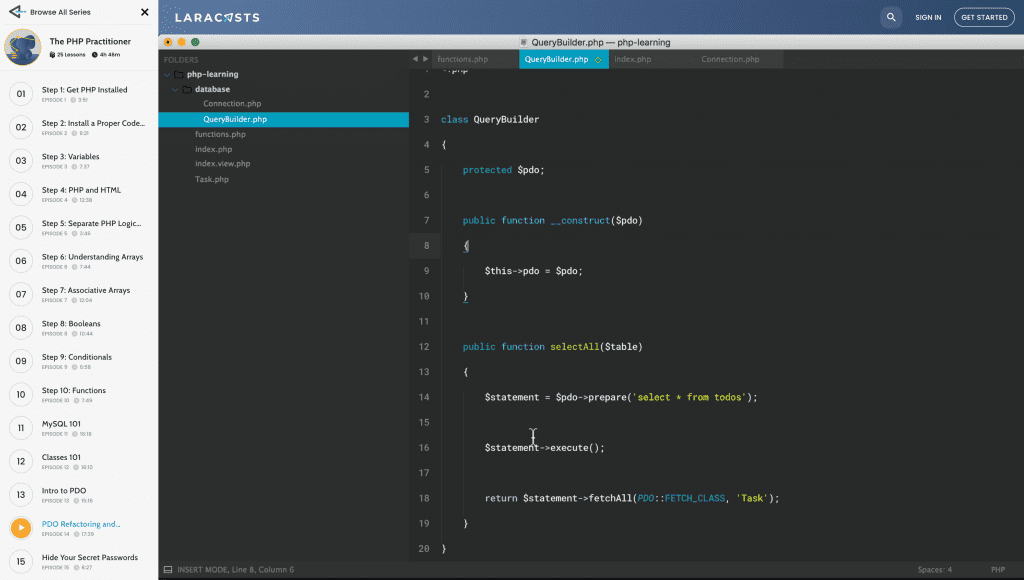
I don’t think I am exaggerating when I say Jeffrey Way is the best PHP instructor in the world, and Laracasts is the best resource to learn PHP and related techs. I’ve myself bought a lifetime subscription to Laracasts.
The PHP Practitioner is almost five years old, but a lot of it is still relevant, and the basics of PHP haven’t changed a lot (one of PHP’s biggest strengths is its backward compatibility). At the time of writing, the course was free and could be accessed without a Laracasts account.
Like The Codeholic, Jeffrey shows you one way of doing things and then shows you a better way of doing the same thing. By doing that, you learn not just about PHP, but also learn about software development concepts like refactoring, DRY (Don’t repeat yourself), and dependency injection.
A great and comprehensive follow up to this course could be the recently launched free Laravel 8 from Scratch. Laravel is one of the most popular PHP frameworks out there and Laracasts is the official resource for learning about it. This almost 10-hour course goes through the process of creating a blog from scratch.
We don’t learn tools for the sake of learning tools. Instead, we learn them because they help us accomplish a particular goal. With that in mind, in this series, we’ll use the common desire for a blog — with categories, tags, comments, email notifications, and more — as our goal. Laravel will be the tool that helps us get there. Each lesson, geared toward newcomers to Laravel, will provide instructions and techniques that will get you to the finish line.
Even if you never plan to use Laracasts, I would still encourage you to go through this course just because of Jeffrey’s style. You will also learn advanced concepts in general which are not specific to a programming language or framework.
And if you like Jeffrey’s teaching style and can afford to pay $15 per month, there are 300+ hours of learning content across 150 series readily available on Laracasts.
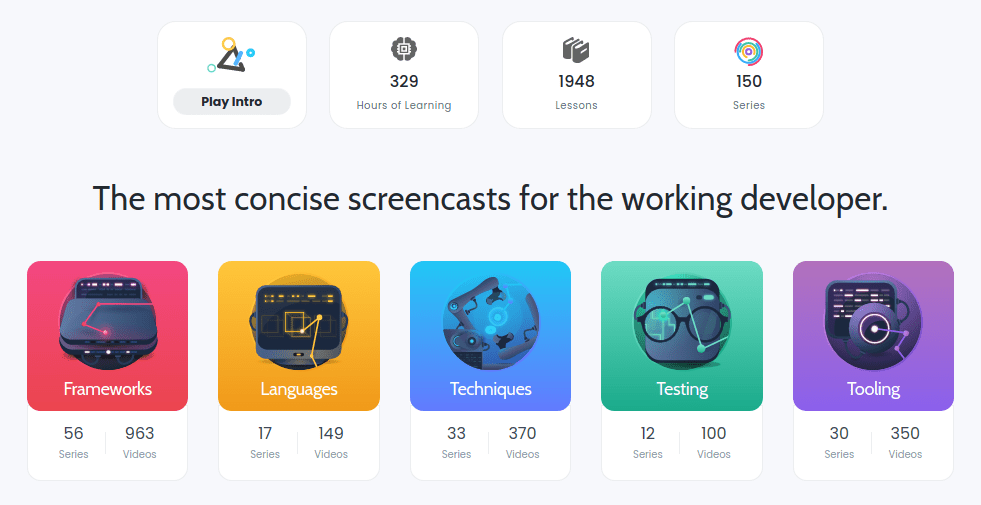
Best with Certificate: Web Applications for Everybody by University of Michigan on Coursera

The Web Applications for Everybody Specialization is a four-part course series offered by the University of Michigan on Coursera. The individual courses are free to audit (here is a guide on how to sign up for free), but you need to pay ($59 per month) if you want a certificate. You can get a certificate for each course, and if you do that, you can get a Specialization certificate.
You will develop web and database applications in PHP, using SQL for database creation, as well as functionality in JavaScript, jQuery, and JSON.
The course is taught by the legendary Dr. Chuck, who has over 3 million students just on Coursera. He is generally known for his Python courses which appear in Class Central’s Best of All Time rankings.
If you want to learn more about his Python courses, you can read my colleague @pat’s review titled I Don’t Want to Become a Programmer. Dr. Chuck’s courses are generally accessible to complete beginners and people trying to learn programming for the first time.
For example, in the first course of the Specialization Building Web Applications in PHP, Dr. Chuck starts by looking at “at the basic structure of a web application and how a web browser interacts with a web server. We explore the Request-Response Cycle that is the basis of the Hypertext Transfer Protocol (HTTP)”.
Here are the four courses in the series:
- Building Web Applications in PHP (4 hours of video)
- Introduction to Structured Query Language (SQL) (3 hours of video)
- Building Database Applications in PHP (4 hours of video)
- JavaScript, jQuery, and JSON (6 hours of video)
Compared to other recommendations in this Skill Guide, these courses go beyond the scope of learning PHP. You might be able to skip some courses or sections (like CSS) that might not be relevant to you if your focus is on being a backend developer (like me!).
They also consist of quizzes and assignments, which the other courses don’t have.
Great Add-on: Object Oriented PHP Tutorial by Net Ninja
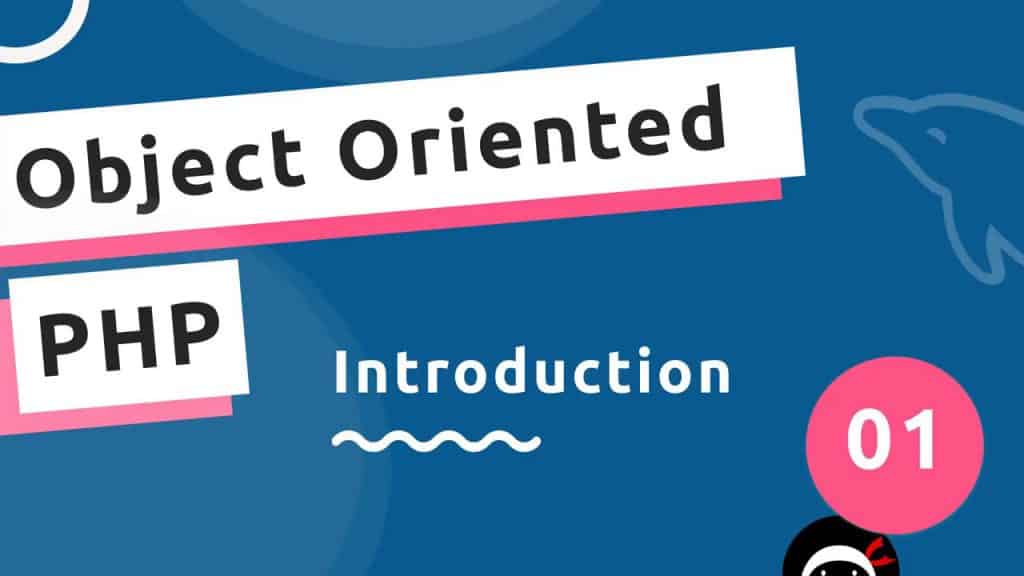
The Net Ninja is one of the most popular developer training channels on YouTube, with 806k subscribers and almost 100 million views since the beginning.
Their 6-hour PHP Tutorial for Beginners, along with their 2-hour Object Oriented PHP Tutorial, is also a great way to start learning PHP.
Compared to previous recommendations, the PHP tutorials by Net Ninja are more comprehensive and focus on the language basics and features. It doesn’t cover framework concepts or package management tools like Composer.
If you decide to go with one of our previous picks, the Object Oriented PHP Tutorial would still be worth doing if you’re not familiar with OOP. The course doesn’t require previous knowledge and goes over OOP basics like classes, constructors, getters and setters, and inheritance.
Finally, it ends with a practical example where you build a class to validate form input.
Similar to Laracasts, if you like The Net Ninja’s style, he has created many more courses.
Tags

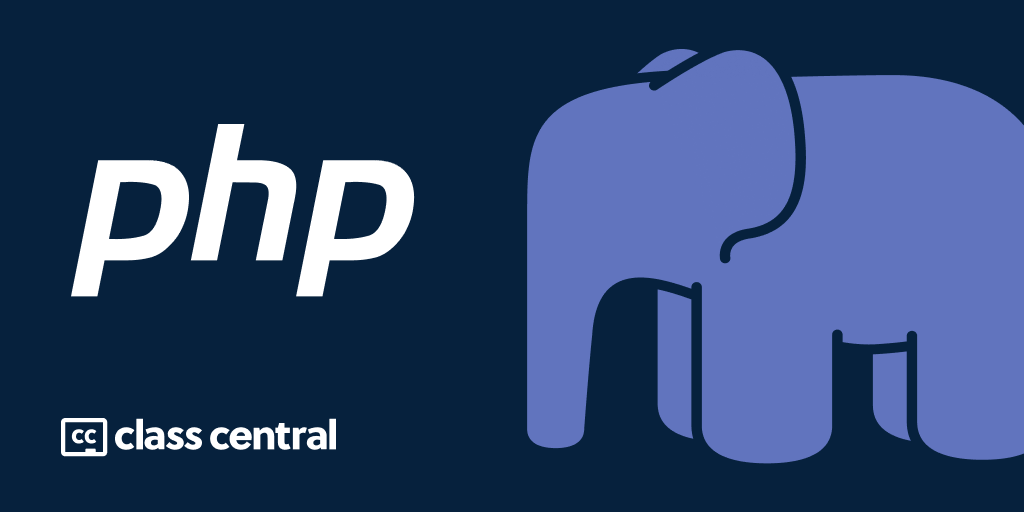






Jim Hackney
Thank you for providing this information. I would love to see more skill guides like this for other languages such as C# or TypeScript, Go, etc. Keep up the great work!
Daniel
Nice…thanks a lot